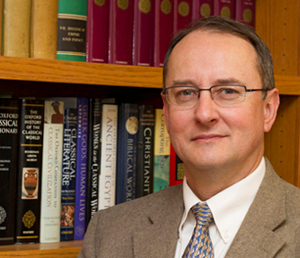Some of the questions asked of us as children remain with us for our entire lives, including that perennial favorite, “What do you want to be when you grow up?” For most of us (except for a few remarkable individuals such as Neil deGrasse Tyson, who decided to become an astrophysicist when he was nine years old), our answer will change as we age. And even when a thematic interest emerges early and endures, our ideas about how precisely to pursue that interest will evolve over time.
During my own elementary school years, for example, I shifted from wanting to be a trash collector to an archaeologist. My fascination with the things people threw away remained; when I went to a college that did not teach archaeology, I became a medieval historian instead.

For most of us, changing our minds about what we want to be when we grow up will have proven to be a good thing, and not only because the economy can support only a limited number of firefighters. For today’s students, however, changing their minds about careers will not be an option but a necessity. Given the pace at which the economy is changing, experts predict that by the time today’s students retire from the work force, most will have held at least a dozen different jobs in almost as many different industries.
Educating our students to succeed in such a world is the most important thing we do in the College of Arts and Sciences, and we are devoting a great deal of time and energy toward doing this important job even better. But as the alumni stories in this edition of Perspectives will attest, we are already doing it pretty well. The unique combination of breadth and depth that characterizes an Arts and Sciences education has allowed these alumni to combine majors in dance and biology, Russian and computer science, anthropology and Danish, and biochemistry and economics. It also has provided them with an intellectual understanding and an appreciation of cultural differences across the globe, and with the capacity to communicate what they know in persuasive and culturally specific ways.
These alumni are using their Arts and Sciences education in ways that neither they, nor we, could have imagined just a few years ago.
These alumni are using their Arts and Sciences education in ways that neither they, nor we, could have imagined just a few years ago. I doubt that any of them could have told us, even as undergraduates, that these were the careers they would pursue. But it is precisely this adaptability and creativity that an Arts and Sciences education should encourage. We believe that it will stand our alumni in good stead as they pursue future opportunities that none of us can predict or perhaps even imagine.
Those of us who celebrate the enduring strengths of an Arts and Sciences education can take heart from these stories, and from many more like them. The educational tradition we represent in the College of Arts and Sciences has a 2,500-year history behind it. But it also has an exciting future before it.
Robert Stacey
Dean, College of Arts and Sciences